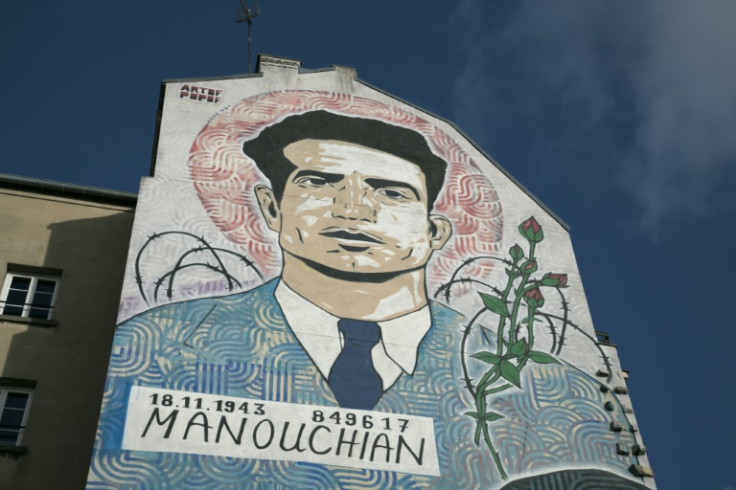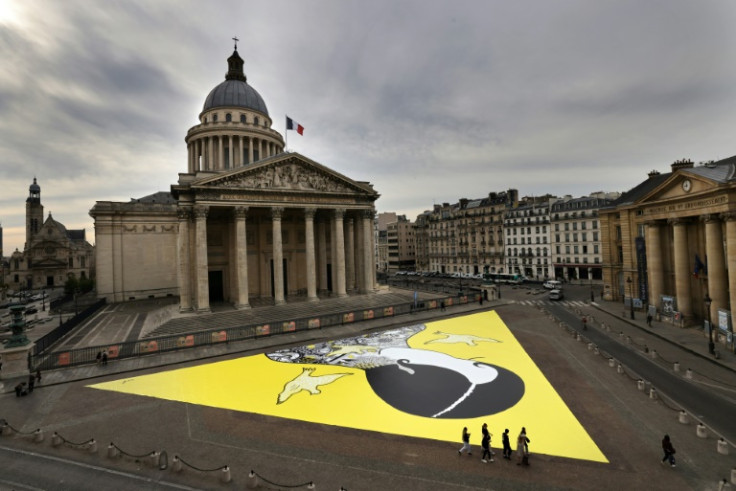Armenian Resistance Fighter Joins France's Pantheon Heroes

A stateless Armenian poet who died fighting the Nazi occupation of France during World War II on Wednesday becomes the first non-French Resistance fighter to enter the Pantheon mausoleum for national heroes.
The belated honour to Missak Manouchian has been seen as long overdue recognition of the bravery of foreign communists -- many Jewish -- who fought the Nazis alongside French Resistants.
"Jewish, Hungarian, Polish, Armenians, communists, they gave their lives for our country," President Emmanuel Macron said this weekend.
"It's a way of ensuring all forms of internal Resistance enter (the Pantheon), including some too long forgotten," he told communist newspaper L'Humanite.
The bodies of Manouchian and his wife Melinee, also a member of the Resistance, will be transferred from the Parisian cemetery where they were buried together to the Pantheon.
The names of 23 of his communist comrades-in-arm -- including Polish, Hungarian, Italian, Spanish and Romanian fighters -- will be added to a commemorative plaque inside the monument.
Manouchian arrived in France as a young man in the mid-1920s, after fleeing World-War-I-era mass killings of Armenians in the Ottoman Empire as a child to French-mandate Lebanon.
He joined the French communist party's armed resistance in 1943, soon leading dozens of foreigners fighting the German occupiers in the Paris region.
Under his watch they carried out sabotage, derailed trains, attacked German soldiers and assassinated a German SS colonel in charge of the forced enlistment of French workers.
Manouchian was arrested in November 1943 and tortured, before being shot dead by firing squad aged 37 with around 20 of his comrades in February 1944.
After their death sentences, a Nazi propaganda poster showing images of ten from the group on a red background, which became known as the "red poster", sought to demonise them as members of a "criminal army".
But it backfired, and later inspired a poem by French poet Louis Aragon, a song and several films.
Manouchian -- who pursued poetry and literature while working in a shipyard and a factory before the war -- had requested French nationality in 1933 and 1940, both times without success.
He was one of many foreigners in the French Resistance.
They were mostly "anti-Nazi Germans and Austrians, Spanish Republicans who had fled Francoism, anti-fascist Italians, Poles who had fled anti-Semitism, Armenians, and Jews from eastern Europe and Germany," according to the French defence ministry.
It is unclear how many exactly of the 2.2 million foreigners in France at the time joined the Resistance.
But of the 1,000 Resistance fighters executed by the Nazis at the Mont-Valerien fort outside Paris during the occupation, 185 were foreign, historian Denis Peschanski told AFP.
That was a much higher proportion of foreigners than in the country's pre-war population of some 40 million.
Under Macron, since 2017 three people have been awarded a place inside the Pantheon: writer Maurice Genevoix, women's rights icon Simone Veil, and US-born entertainer and French Resistance member Josephine Baker.
Baker -- the first black woman to receive the honour -- had been awarded French nationality before the war.
Last year the president said Manouchian would receive the honour too, paying tribute to his "bravery" and "quiet heroism".
At the time, parliament was debating a controversial immigration bill, which Macron eventually signed into law earlier this year.
He has also called for former French justice minister Robert Badinter, who in 1981 brought an end to capital punishment in France, to be "pantheonised" after he died earlier this month.


© Copyright AFP 2024. All rights reserved.











